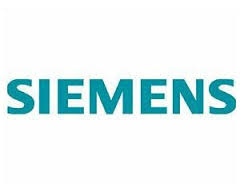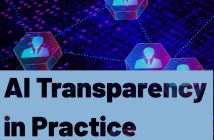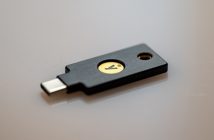
- Launch
 of FutuRide national competition for secondary schools to
of FutuRide national competition for secondary schools to - engage in Science Technology Engineering and Maths (STEM)
- Cadel wants kids to be as excited about STEM as they are about sport
- $100K worth of power generating bikes to be won by 18 schools
- Cadel to visit overall winning school
Siemens Australia and Ambassador Cadel Evans has launched a nation-wide video competition challenging secondary school students to employ the skills needed to ensure Australia’s future.
Students from around Australia can win a set of four FutuRide power generating bikes as part of the more than $100,000 in prizes on offer.
To win, students need to create a short creative video that answers the question – “what kind of future will you power?”
Staff and students at Melbourne’s Siena College were given an advance trial of the power generating bikes and gave their tick of approval to the contest.
Head of Science Anita Galli said the contest had potential to dramatically increase student interest in STEM subjects.
“Incorporating experiential learning is a key element of our ‘Learning beyond the classroom program’.
“We are always looking for new ways to combine learning in the classroom with real-life experiences beyond the boundaries of the College and to teach in a way that links the process to a relevant application,” she said.
“Experiential learning is key to that process and these power-generating bikes represent a fantastic teaching aid to help stimulate that process,” Galli said.
Siena College student Breana Ritchie said the hands-on learning experience of using the bikes made classes a lot more interesting.
“I find it a lot easier to remember lessons when it involves doing something, rather than being told something. When I actually do an activity, rather than just read about it, I understand it a lot better,” she said.
Cadel said he hoped the contest would inspire teachers and students to engage in STEM subjects.
“I want Australian kids to have as much passion for science, technology, engineering and math as what they have for sport.
“Australia has shown the world time and time again that in sport we punch above our weight. It’s time to do this in skills and knowledge as well,” said Cadel.
The competition has been backed by leading technology bodies the Australian Advanced Manufacturing Council (AAMC), Engineers Australia and National Science Week
John Pollaers, AAMC Chairman and head of the Federal Government Industry and Skills Committee welcomed the Siemens initiative.
“There is a growing need to raise our STEM skills in Australia – across the board,” Mr Pollaers said.
“This requires a new way of thinking. When kids think of these subjects they don’t have enough industry context, such as what jobs will it lead to? Why should they care?”
“Siemens’ idea of bringing to life the significant technological advances occurring in the world through this practical schools engagement program is to be highly commended. The shift to a more globalised world, combined with disruptive emerging technologies – the far-reaching impacts of the cyber world meeting the physical world – pose enormous global opportunities.”
“The world is moving fast, adopting new technologies and creating new industries. Australia’s enduring prosperity depends in large part on the next generation’s skill in adapting to these new challenges,” Mr Pollaers said. ”We need to make sure they are fully equipped.”
Siemens CEO Jeff Connolly said the concept of the competition came from the idea that teachers were continually looking for new ways to provide experiential learning opportunities.
“These electricity generating bikes help stimulate the student’s imagination. It helps demonstrate what they’re learning can be put into practice.
“While kids are steadily dropping away from STEM subjects because they don’t consider them exciting, the irony is these same kids are naturally embedded into the applications of these subjects in their everyday lives. They just don’t make the connection between the two.
“How many times do adults rely on our teenage kids to teach us how to use the smart phone, how to download an app, record a program on Foxtel or remove a virus from the home computer?”, Connolly said.
“The most powerful tool required for Australia to participate in the exciting global supply chain, the big global projects, is actually the human brain – and that’s where Australia can excel and can show the world that we are an important participant in the future,” Connolly said.
Engineers Australia CEO Stephen Durkin said the need to stimulate interest in STEM subjects was vital for Australia.
“Now is the time we need to influence future generations of Australian school children to plan for a career that transforms our country to a high-tech, high-value economy.”
“We need events like this to raise the awareness for students to understand ‘why’ they are doing what they’re doing. I believe that if students can make the connection between the subjects they study and the skills needed in industry for the jobs they want then they’re far more likely to want to take up STEM subjects.
“We all know that it’s one thing to tell someone something but it’s another to show them something and then ultimately to get them to experience something. The bikes are one way we can assist this to happen by providing an experience where students can use their imaginations to do something electrifying,” he said.
About the FutuRide competition
Siemens is giving away over 70 FutuRide power generating bikes valued at more than $100,000. Each winning school will receive four bikes allowing teachers to demonstrate the use of energy in a real-life practical application.
Teachers will also have access to interactive learning tools, which promote STEM in a fun and innovative way.
The contest will run from June 23 to August 7 with winners announced during National Science Week running from August 16 to 23.
Eighteen winning schools will be chosen from the 90-second videos submitted. Ten of these will be awarded by the judging panel working on the following key criteria:
- Innovation – how innovative is the idea?
- Theme– is the topic is addressed in the submission?
- Creativity – how creative is the submission?
The other eight will be named the ‘People’s Choice Winners’. This means that they have achieved the most likes and shares via the www.futuride.com.au website within their state or territory.
All 18 winning schools will then be judged to select an overall winner, who will be rewarded with a visit from Australia’s first and only Tour De France winner, Cadel Evans.
Siena College Head of Science Anita Galli and student Breana Ritchie enjoyed a sneak preview of the power generating bikes that can be won in the Siemens FutuRide competition. Open to secondary schools around Australia, 18 schools will share in a prize pool valued at more than $100,000 and develop their STEM skills by entering a video that answers the question “What kind of future will you power?”. The overall winning school will be visited by Siemens Ambassador and contest judge Cadel Evans.
Siena College students Katherine Kim (left) and Breana Ritchie (right) direct Chiara de Cruz for their video entry to the Siemens FutuRide competition. Open to secondary schools around Australia, 18 schools will share in a prize pool of power-generating bikes valued at more than $100,000 and develop their STEM skills by entering a video that answers the question “What kind of future will you power?”. The overall winning school will be visited by Siemens Ambassador and contest judge Cadel Evans.
Siemens AG (Berlin and Munich) is a global technology powerhouse that has stood for engineering excellence, innovation, quality, reliability and internationality for more than 165 years. The company is active in more than 200 countries, focusing on the areas of electrification, automation and digitalization. One of the world’s largest producers of energy-efficient, resource-saving technologies, Siemens is No. 1 in offshore wind turbine construction, a leading supplier of combined cycle turbines for power generation, a major provider of power transmission solutions and a pioneer in infrastructure solutions as well as automation, drive and software solutions for industry. The company is also a leading provider of medical imaging equipment – such as computed tomography and magnetic resonance imaging systems – and a leader in laboratory diagnostics as well as clinical IT. In fiscal 2014, which ended on September 30, 2014, Siemens generated revenue from continuing operations of €71.9 billion and net income of €5.5 billion. At the end of September 2014, the company had around 357,000 employees worldwide. Further information is available on the Internet at www.siemens.com.






